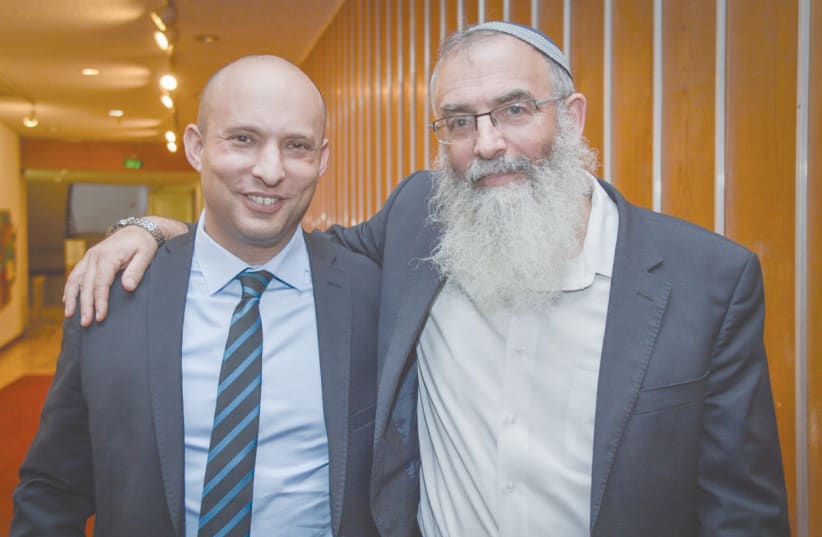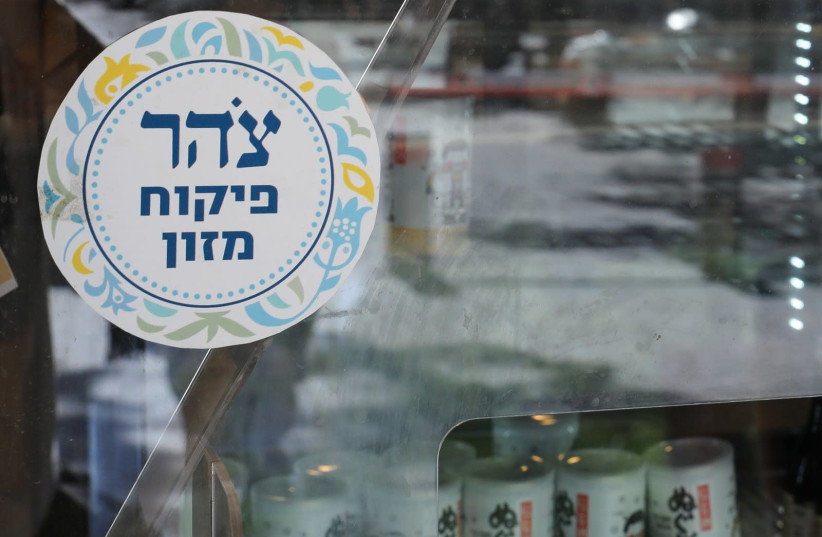Last week, I dined at a fantastic new Italian restaurant in Jerusalem – Palomino. Before going, I was asked, “It has Tzohar kashrut; is that OK?” “Okay?” I answered. “That will make the food tastier!”
Tzohar is that extraordinary organization led by the heroic Rav David Stav seeking to humanize Israeli Judaism. With their impressive religious credentials, Tzohar’s 800 Orthodox rabbis remember what we just read in Lech Lecha: Jews fuse! In Genesis 12 God makes us a people, intertwining our religious and national identities. Tzohar rabbis understand that every Jew’s mission includes cultivating Jewish unity.
With that peoplehood perspective, wherever the anti-Zionist rabbinate (TAZR) harms Judaism, Tzohar steps in, saving the day. TAZR imposes alienating, uninterested, heavy-handed rabbis on weddings – poof – Tzohar sends warm, inviting, friendly rabbis instead. TAZR makes conversion increasingly harder, ignoring the plight of Russian Jews with confusing Jewish backgrounds who serve in Israel’s army – poof – Tzohar helps Russian Jews clarify their Jewish status while facilitating conversions for those who want to join the Jewish people sincerely. And now, TAZR runs an unresponsive, often corrupt kashrut supervision system – poof – Tzohar creates a user-friendly yet equally rigorous system while – added bonus – championing equality by training female supervisors, too.
TZOHAR’S ZIONIST-INFUSED, Jewish-peoplehood-loving creativity and flexibility reflect a broader trend disproving that popular Jewish stereotype about Israel – that we’re divided between secular, religion-hating Jews and religious, secular-hating Jews.
Israel’s first kippah-wearing, open-minded, forward-thinking prime minister, Naftali Bennett, represents today’s magnificent mass-muddled middle. Many coalition partners are bridge-building stereotype busters, too, from the secular-seeming Benny Gantz – who reads the weekly Torah portion regularly and tries to avoid working on Shabbat – to his kashrut-keeping, Sabbath-observing, yet equally-bareheaded Blue and White colleague Alon Tal, who doubles as the gabbai – jack-of-all-trades – at his Conservative/Masorti synagogue.
Many studies echo Shmuel Rosner and Camil Fuchs’s 2019 book on Israeli Judaism. With more than two-thirds believing in God, observing Shabbat dinner with their families, sitting shiva when there’s a tragedy, eating matzah on Passover and fasting on Yom Kippur, most Israelis are “traditional” – even if they call themselves “secular” because they swallow TAZR’s all-or-nothing idiocy claiming that if you don’t observe religion as they do, you’re a “goy.”
EQUALLY CONFUSING – in the best way – is the courageous position taken by another hero, Reb Eliezer Melamed.
Last year I labeled Melamed our generation’s Yosef Caro because his best-selling series, Peninei Halakha, Pearls of Jewish Law, summarizes the how-tos of Jewish living so brilliantly. But the millions of copies his books have sold make him today’s Jewish Pied Piper, too, helping many young Jews live rich Jewish lives by summarizing and simplifying without distorting the basics.
Two summers ago, I met Melamed and his wife, Inbal, thanks to Our Common Destiny, an important initiative emphasizing the ideological and familial bonds uniting us Jews worldwide.
Last June, the inimitable bridge-building journalist Zvika Klein and Makor Rishon invited me to moderate a conversation between Melamed and Delphine Horvilleur, the Reform rabbinical pop star venerated by French Jews and non-Jews. The conversation that ensued was a symphony of Jewish learning, with one clear melody line: we all love the Jewish people.
That interaction made Klein, Melamed and Horvilleur more worthy of the Jewish Nobel Prize than the simply rich or famous Jews who have been nominated for this year’s Genesis Prize. These people understand the power of Jewish unity and Jewish history. These people are true Zionists, working to keep the Jewish people together – and thriving. And these people learned from the Second Temple’s destruction that our role as Jews is to repulse the un-Jews, those Jews who rise up to divide us, to disrespect our core values, to try undoing the defining Jewish lesson, from Abraham and Sarah, that we do not just pray to the same God as followers of the same religion, but we are interconnected, one people, protecting one another as members of one extended family, ensuring that all Jews know that wherever they are, whatever they face, they are never alone.
That conversation’s contact high should have triggered a massive Jewish peoplehood moment. This love bomb – from Jerusalem, where I sat; Har Bracha, where Melamed sat; and Paris, where Horvilleur sat – should have detonated globally, entrancing Jews everywhere, uniting and silencing those unaffiliated who mock serious Jews as primitive, those Reform and Conservative Jews who deride “the Orthodox” as medieval, those Orthodox Jews who dismiss liberal Jews as lost and dangerous.
Instead, most Jews ignored this moment, while a few insecure, unlearned ultra-Jews attacked Melamed. Instead of being praised for understanding Jewish peoplehood power, for championing our common destiny, for reaching out as one Jew to another, one believer to another, one fellow human facing COVID to another, he has been condemned. Two rabbis recently withdrew their approval from his gems of Jewish law.
Their opposition is a badge of honor. By condemning Melamed, they condemn themselves, showing their pettiness, their insecurity and their ignorance – they missed the Torah’s founding lesson.
Melamed knows who he is. He, like Stav and all of Tzohar’s rabbis, understands that Jews have only one choice – to talk to one another, to look out for one another, to grow together with each other.
This imperative is not only because we delight our enemies when we’re divided. It’s because we betray each other – and ourselves – when we define Jews by the few things setting us apart rather than the many sacred bonds keeping us together. So Jews of the world unite – we have nothing to lose, much to gain.
The writer is a distinguished scholar of North American history at McGill University and the author of nine books on American history and three on Zionism. His book Never Alone: Prison, Politics and My People, coauthored with Natan Sharansky, was published by PublicAffairs of Hachette.

